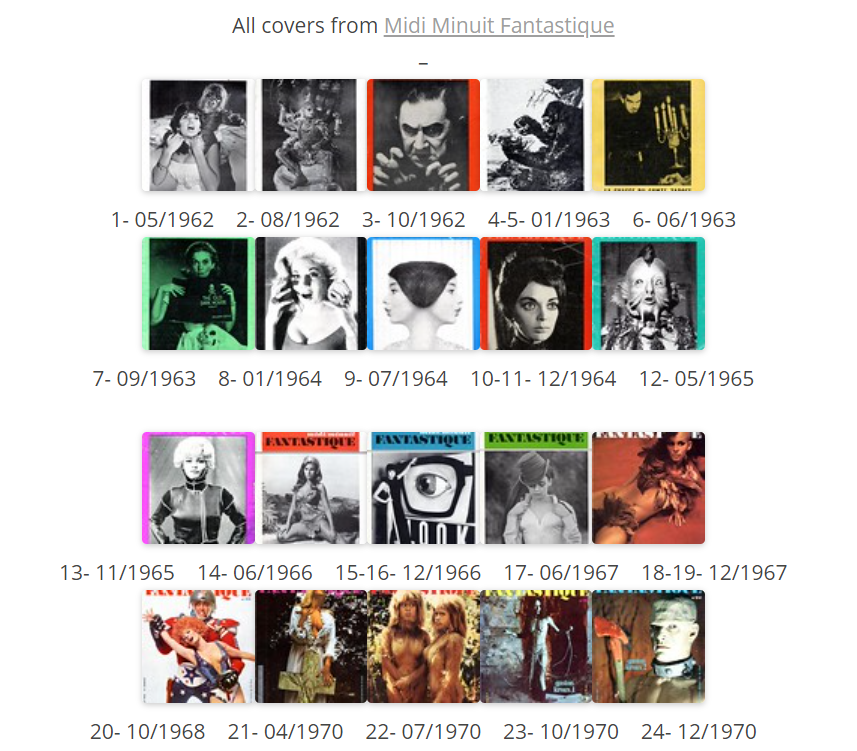Françoise Arnoul was a French actress known for her parts in French Cancan, The Devil and the Ten Commandments and Forbidden Fruit; and not so much for her part in Post Coitum, Animal Triste (1997). However, I show you the trailer of that film, because of its title, which I have been able to trace into the 16th century, in the work of Jean Benedict in La somme des péchés et le remède d’iceux (1595).
Tag Archives: French cinema
RIP Jean-François Stévenin (1944 – 2021)
Jean-François Stévenin was a French actor known for many things and not so much for playing Dolmancé in La philosophie dans le boudoir (1991) by Olivier Smolders.
RIP Pierre Jansen (1930 – 2015)
This happened in 2015, but I only found out today.
Pierre Jansen was a French composer working in film. He was in particular the permanent collaborator of Claude Chabrol for whom he composed the music for many films.
He also scored the above documentary Acera, or the Witches’ Dance (1972) by Jean Painlevé.
RIP Jean-Claude Romer (1933 – 2021)
Jean-Claude Romer was a French actor, film critic and film historian.

He was editor-in-chief of French film magazine Midi Minuit Fantastique (1962 – 1971), the first magazine dedicated to genre cinema and cinema fantastique.
It has come to my attention that the first issue of Midi Minuit Fantastique is online in full at Archive.org[1].
That issue is dedicated to Terence Fisher, who still seems to be a bit underrated and of whose film The Stranglers of Bombay it is said:
“More clearly than any other Hammer effort, The Stranglers of Bombay lays bare the foundation of voyeurism, scopophilia, misogyny, castration anxiety, repression, sadomasochism, and “the male gaze” which informs the construction of Hammer’s output.”
The Charm of Evil: The Life and Films of Terence Fisher (1991) by Wheeler W. Dixon
One thing leading to another as they say, I stop here, because it is leading me too far.
RIP Willy Kurant (1934 – 2021)
Willy Kurant was a Belgian cinematographer, famous for shooting films such as Trans-Europ-Express (1966), Man on Horseback (1969), Cannabis (1970) and Je t’aime moi non plus (1976).
RIP Bertrand Tavernier (1941 – 2021)
Bertrand Tavernier is known for such films as Death Watch (1980), a French science fiction film in which Romy Schneider plays a dying woman whose death is recorded on national television in an ongoing soap opera of morbid reality television.
RIP Jean-Claude Carrière (1931 – 2021)
Jean-Claude Carrière was a French novelist and screenwriter famous for scripting The Discreet Charm of the Bourgeoisie, The Phantom of Liberty and The Unbearable Lightness of Being.
I give you the toilet scene from The Phantom of Liberty, it makes you wonder if Buñuel scripted it alone or he asked Carrièret to assist him.
RIP François Leterrier (1929 – 2020)
François Leterrier was a French film director and actor. He entered the film industry when he was cast in Robert Bresson’s film A Man Escaped (1956).
Goodbye Emmanuelle (1977) features a reggae-inspired soundtrack by Serge Gainsbourg.
His sketch film Slices of Life (1985) is a bit silly but features the prescient and good-hearted “Paris sera toujours Paris” which is an illustration of the Great Replacement theory.
RIP Michel Robin (1930 – 2020)
In France, the actor Michel Robin died. He turned 90. He played in more than 120 films. Always bit parts. You can recognize him by his bald head and the banal characters he usually had to portray.
Favorites are Mais ne nous délivrez pas du mal (1971), a film about two beautiful adolescent girls who start indulging in a satanic love for evil. Robin plays the simple gardener whose parakeet is killed by the diabolic duo.
There is L’Invitation (1973) in which Robin plays a simple and clumsy office worker who, after inheriting a fortune, invites his colleagues to his new estate. There, those good bourgeois men and women are intoxicated by a spiked drink at the hands of a rogue bartender. The situation escalates. Cult movie.
And then there is the genius animal head puppet film Marquis (1989) in which Robin voices a certain Ambert, a rat prison guard who is eager to be sodomized by the Marquis de Sade, something Colin, the living and talking phallus of the Marquis does not wish to indulge in.
“Paris sleeps in the arms of the Seine”
Following the death of Juliette Gréco, I watched the 1951 French film Sous le ciel de Paris by Julien Duvivier.
It’s undervalued film. It begins with an exhilarating fly-over of Paris by night, topped with a voice-over mentioning all these souls in the city for which fate has a thing or two in store.
The ensuing action takes place over a period of 24 hours while many of the participants lives intermingle, making it an early example of hyperlink cinema.
